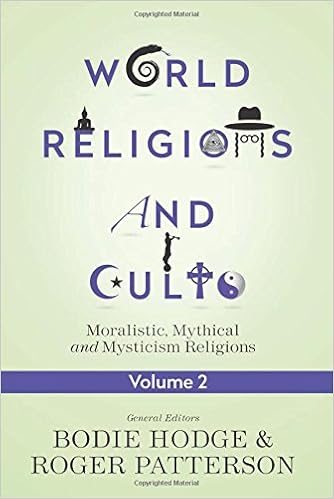Atheism
Definition
Atheism includes any philosophy which claims that no God or gods exist, including any rational or reasoning creator of the universe.
Keywords: Atheism, Philosophy, God, Rational, Veracity, False, Belief, Reason, Contradictory, Argument From Reason.
Veracity
Atheistic claims are false .
Proof
Any view regarding the external world that denies the possibility of rational thought regarding the external world prohibits warrant for the deductive process and is thus deductively false.
Premise 1: If premises begin to exist without reason, then conclusions drawn from them are also without reason.
Premise 2: If there is no god, all initial human premises about the external world begin to exist without reason.
Conclusion: Therefore, if there is no god, all human conclusions about the external world are also without reason.
If there is no god, there is no reason to accept the universality or the invariance of logic or the deductive process, making atheistic claims themselves deductively false.
This Argument from Reason demonstrates that god exists.

Gilbert Guttlebocker, Defender of Dragons
Riveting, yet absurd; romantic, yet innocent; Gilbert Guttlebocker, Defender of Dragons is a little Roald Dahl, a little Harry Potter, and a little Chronicles of Narnia, all rolled into one. Timothy McCabe collaborates with the great Benedict Ballyhoot to bring you the novel of the century!

In Printed Form
Along with numerous other authors including Don Landis, Bodie Hodge and Roger Patterson, Timothy McCabe contributes analyses of various world religions and cults in this volume from Master Books.
Other Writings
"Why does the bible, supposedly the perfect inerrant word of god, claim that bats are birds (Lev 11:13-19)."
Here are the relevant texts in the NASB: Leviticus 11:13-19 These, moreover, you shall detest among the birds; they are abhorrent, not to be eaten: the eagle and the vulture and the buzzard, and the kite and the falcon in its kind, every raven in its kind, and the ostrich and the owl and the sea gull and the hawk in its kind, and the little owl and the cormorant and the great owl, and the white owl and the pelican and the carrion vulture, and the stork, the heron in its kinds, and the hoopoe,...
Continue reading...
"I'm not a Christian. Why did God create me knowing that my fate is to burn forever in Hell?"
Romans 9:21-24 Does not the potter have a right over the clay, to make from the same lump one vessel for honorable use and another for common use? What if God, although willing to demonstrate His wrath and to make His power known, endured with much patience vessels of wrath prepared for destruction?
Continue reading...
"By what criteria do you attribute veracity to your faith's sacred text(s,) and thus the basis of that faith? Is that criteria objective?"
Christians accept the Bible as authoritative and true for a variety of reasons. INDIVIDUAL, PERSONAL CONVICTION As Jesus states, "My sheep hear My voice, and I know them, and they follow Me" (John 10:27). When God brings us to Christ, we recognize our Master's message, both spoken and written. God Himself causes this to be the case. If He has chosen you to receive His mercy, you will also recognize His message.
Continue reading...